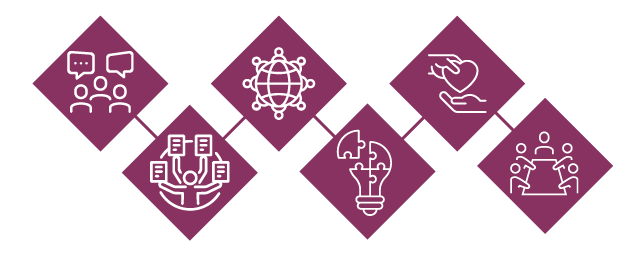Soft Skills Should be Considered Mandatory Training at Organizations
Written by Brittany Yates
Success, Growth, Sustainability, and Longevity. If those are some of the goals for your organization, it’s time to make soft skills training required. Soft Skills will take you places that Hard Skills can’t. Although hard skills will help jumpstart and establish an organization, soft skills will create longevity because they’re centered around people and businesses need people to withstand. Soft skills can be defined as people skills and personal attributes that make someone interact effectively with others. Soft skills are also character traits that support personal and organizational goals. Without soft skills your business will not succeed, grow, sustain, or have longevity. According to SHRM, organizations need people to succeed, customers to grow, happy customers to sustain, and loyal customers for longevity. Organizations also need employees that understand people. As you can see, organizations are truly centered around people and so are soft skills.
Soft Skills vs. Hard Skills…What’s The Difference
Have you ever left a business and raved about their great customer service or customer experience? Maybe even been to an establishment that you now frequent regularly because of how you were treated? How about when you’re looking to purchase a service and the representative is confidently explaining a process and providing recommendations? Or, when a worker will do everything, they can to make sure you get what you’re looking for.
Certainly, you’ve experienced something similar. All the scenarios above are likely to cause you to refer a business to someone and continue to patronize them yourself. The scenarios also describe soft skills; customer service, customer experience, relationship building, teamwork, and taking initiative. All soft skills are necessary to create a positive, cohesive, and functional workplace.
Believe it or not, Soft Skills are harder to learn than hard skills, and are essential to career and job growth. While some people are born with natural soft skills, others must learn them, and this is why soft skills training should be required at every organization.
Hard skills are beneficial, although they are more efficient when accompanied with soft skills. Some of the benefits are:
Can help demonstrate expertise
Provide measurable outcomes
Reduced turnover
Soft skills are transferable and can benefit organizations in many ways such as:
Increasing productivity
Improving customer service
Adaptability and flexibility
Problem-solving and decision-making
Increased retention rates
Effective communication
Improved job satisfaction
Time management
Loyal customers
Increased team morale
Effective communication
The Negative Impact of Poor Soft Skills
Now, on the other hand, have you ever left a business and felt like you weren’t welcomed, and it felt like the employees didn’t feel like working? What about going to an establishment when the employees specialize in what you need but they aren’t being helpful?
“Customers will always remember how you made them feel. ”
Again, I’m sure you’ve had similar experiences. These experiences can leave you frustrated and feeling like you’ve wasted your time and even money. The scenarios here are describing what happens when a business lacks soft skills and only has hard skills to offer. Customers will always remember how you made them feel. Often, when hard skills aren’t accompanied by soft skills you tend to be impersonable and unwelcoming. All of which are things that will turn customers away. Although hard skills are essential and necessary, they are technical skills that can become outdated, they’re job-specific, and are typically task focused. These types of skills aren’t always transferable.
Hard skills are what employers usually focus on rather than developing soft skills to accompany the hard skills. The lack of attention that soft skills received can become detrimental to an organization and here’s why hard skills and soft skills are meant to complement one another.
If soft skills are so important, why aren’t organizations investing in them?
When employees join organizations, they are typically met with training requirements, such as yearly security training, orientation, or refresher courses to help continuously develop your hard skills. What organizations aren't doing is making it a requirement to complete soft skills training, although they are just as important as hard skills. But why?
Soft skills are harder to learn, they take hands on practice
Learning soft skills requires changed behavior
Learning soft skills is often done best when consistent feedback is provided, making coaching or mentoring ideal for learning soft skills
Employers feel they don’t have the time/resources to create more trainings
Without gathering the facts and all pertinent information it’s difficult to develop a complete and comprehensive training product. For example, if a training is being developed and its intended target audience is leadership, but during the analysis phase this information wasn’t uncovered; when moving to the design phase to draft a script and storyboard the content may not speak to leadership, rather entry level employees. This would cause rework, which means more time, money, and resources, or worse- a course that fails at effective retention and engagement.
The Bottom Line
The bottom line is organizations cater to people through soft skills. Therefore, it’s important that all employees are thoroughly trained in a variety of soft skills. Windwalker can help resolve the above issues organizations have through our game-changing development platform that fosters personal and professional success: WindwalkerXP™.
WindwalkerXP™ offers a phenomenal catalog of soft skills training courses equipped to develop your employees through skills such as effective communication, time management, decision making, and more.




